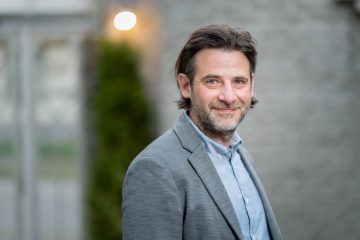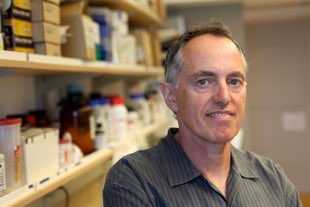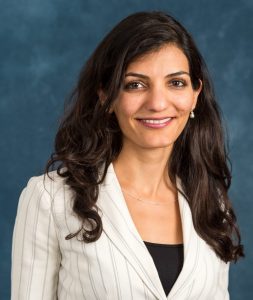June 7, 2022

Fifteen UBC researchers were announced as new and renewed Canada Research Chairs in the latest round of appointments.
The Canada Research Chairs Program enables Canadian universities to achieve the highest levels of research excellence and become world-class research centres. Chairholders improve our depth of knowledge and quality of life, strengthen Canada’s international competitiveness, and help train the next generation of highly skilled people through student supervision, teaching and the coordination of other researchers’ work.
The Honourable François-Philippe Champagne, Minister of Innovation, Science and Industry, announced an investment of more than $102 million, in support of 119 new and renewed Canada Research Chairs at 35 Canadian research institutions. The 15 new and renewed UBC chairholders being announced represent an investment of $15.1 million through the Canada Research Chairs program.
NEW CHAIRS
- Muhammad Abdul-Mageed (Computational Linguistics and Information Science) Tier 2 Canada Research Chair in Natural Language Processing and Machine Learning
- Phanuel Antwi (English Language and Literatures) Tier 2 Canada Research Chair in Black Arts and Epistemologies
- Julia Gabriele Harten (School of Community and Regional Planning) Tier 2 Canada Research Chair in Data Innovation for Housing and Inclusive Urbanization
- Crystal Karakochuk (Land & Food Systems) Tier 2 Canada Research Chair in Micronutrients and Human Health
- Kai Li (Sauder School of Business) Tier 1 Canada Research Chair in Corporate Governance
- Patricia Schulte (Zoology) Tier 1 Canada Research Chair in Responses of Fish to a Changing Environment
RENEWED CHAIRS
- Andrea Damascelli (Physics & Astronomy) Tier 1 Canada Research Chair in Electronic Structure of Quantum Materials
- Adam Ford (Biology – UBCO) Tier 2 Canada Research Chair in Wildlife Restoration Ecology
- Mark Johnson (Institute for Resources, Environment and Sustainability) Tier 2 Canada Research Chair in Ecohydrology
- Mark MacLachlan (Chemistry,) Tier 1 Canada Research Chair in Supramolecular Materials
- Corey Nislow (Pharmaceutical Sciences) Tier 1 Canada Research Chair in Translational Genomics
- Gina Ogilvie (School of Population and Public Health) Tier 1 Canada Research Chair in Global Control of HPV-Related Disease and Cancer
- Matthew Pennell (Zoology) Tier 2 Canada Research Chair in Adapting Biosystems
- Geraldine Pratt (Geography) Tier 1 Canada Research Chair in Care Economies and Global Labour
- Navin Ramankutty (Institute for Resources, Environment and Sustainability and the School of Public Policy and Global Affairs) Tier 1 Canada Research Chair in Data Science for Sustainable Global Food Systems
June 3, 2022

For UBC researchers and scientists focusing on innovations that will advance the future of our world.
Lab2Launch supports UBC researchers and scientists who plan to build, or are building, a deep tech venture based on a proprietary and novel scientific or technological innovation. Participants in this stream will dive deep into the DNA of their venture opportunity, articulating the problem they are solving, identifying who experiences this problem, and why the proposed solution is the preferred market opportunity.
Applications are open for Venture Founder: Lab2Launch until June 30. Apply now
Program Overview
In Venture Founder: Lab2Launch, we provide researcher-based, venture teams with industry expertise, practical business training and deep mentorship to develop research discoveries into transformational venture opportunities. The Lab2Launch series of mentor-enabled workshops helps teams identify a viable and valuable start-up opportunity, guiding the Venture Founder team through venture creation with a focus on team building, technology development, market traction, and financing through the 4T’s Venture Playbook.
Eligibility
Preference is given to Lab2Launch applicants who can demonstrate the following:
Team
- The venture team comprises at least two motivated individuals who are receptive and open to coaching and are able to receive advice which may be contrary to the teams’ thinking or opinions. Preference may be given to teams with a diversity of knowledge and skills (eg. a business person and a technical person) at the discretion of entrepreneurship@UBC.
- At least one member of the team must be a UBC student, faculty member or staff member, or a recent UBC alumni (within 5 years of graduation). At the time of application, student team members should be within twelve months of graduating.
- Applicant must be driven, motivated and have the bandwidth to pursue a startup venture with entrepreneurship@UBC.
- Applicant can articulate a vision for the venture whereby, the venture success can be articulated as being investible and/or scalable (vs a lifestyle business).
Tech
- A proof-of-concept in a model or setting validated by peers, partners or potential customers. Teams that have not progressed beyond the raw idea stage may apply, and will be considered on a case by case basis.
- Ability to clearly articulate a unique and proprietary solution, and identify IP that protects your venture opportunity.
- See TRL definitions here to estimate the level of development of your innovation. A TRL of Level 3 or 4 is recommended.
Traction
- Applicant has an understanding of their competitive landscape.
- Applicant has an understanding of the elements of their business model based on comparables and some market sizing.
Treasury
- Team should have a basic idea for revenue generation. There is no expectation for revenue generation in the Venture Founder stage.
May 13, 2022

We are delighted to announce the appointment of Dr. Dean Regier as Co-Director pro tem for the Academy of Translational Medicine (ATM) while Dr. Poul Sorensen is on sabbatical at Technical University of Munich.
Dr. Regier is an associate professor at the School of Population and Public Health, a Senior Scientist within Cancer Control Research and the Director of the Health Economics Support and Research Unit (HESRU) at BC Cancer.
As the current Chair of the ATM Regulatory Advisory Council, Dr. Regier has comprehensive knowledge of the ATM organization and ongoing initiatives. As Co-Director of the ATM, Dr. Regier will provide day to-day leadership and guidance to the ATM, represent the ATM in meetings, as well as define strategic direction for the ATM regulatory and educational programs.
Dr. Regier says: “I am excited and proud to be part of the ATM leadership team, and I look forward to being more involved in the ATM’s important work to accelerate translation of new health discoveries”.
Please join us in congratulating Dr. Regier on his appointment.
May 5, 2022
The award, given every year by the Connective Tissue Oncology Society, recognizes outstanding contributions to the basic science of sarcomas, especially research that translates into clinical benefits for patients. Sarcomas are malignant tumours of the connective tissues. […]
May 5, 2022
 Dr. Poul Sorensen, Professor of Pathology and Laboratory Medicine and Director of the Academy of Translational Medicine (ATM) at UBC, is taking a short 4-month sabbatical at Technical University Munich (TUM) in the Southern German city to gain insights into how the German system supports translational medical research. Germany, and in particular TUM, has a long and distinguished track record of successfully translating their biomedical discoveries to clinical implementation. One of the main reasons for this success is that top-flight German universities are generally enrolled in the many strong networks of excellence in thematic research that exist across the country. For example, the Deutsches Krebsforschungzentrum (DKFZ) is an established network of excellence across the country that links centers with a specific focus on cancer research, not only basic and translational but also clinical trials research. This ensures a predictable level of ongoing central funding for strong programs, supports research collaborations, and avoids redundancy in research efforts. The goals of this sabbatical are, in large part, to determine if some of the lessons learned at TUM to implement translational research can be applied to the ATM, and to forge new translational research collaborations between the two universities.
Dr. Poul Sorensen, Professor of Pathology and Laboratory Medicine and Director of the Academy of Translational Medicine (ATM) at UBC, is taking a short 4-month sabbatical at Technical University Munich (TUM) in the Southern German city to gain insights into how the German system supports translational medical research. Germany, and in particular TUM, has a long and distinguished track record of successfully translating their biomedical discoveries to clinical implementation. One of the main reasons for this success is that top-flight German universities are generally enrolled in the many strong networks of excellence in thematic research that exist across the country. For example, the Deutsches Krebsforschungzentrum (DKFZ) is an established network of excellence across the country that links centers with a specific focus on cancer research, not only basic and translational but also clinical trials research. This ensures a predictable level of ongoing central funding for strong programs, supports research collaborations, and avoids redundancy in research efforts. The goals of this sabbatical are, in large part, to determine if some of the lessons learned at TUM to implement translational research can be applied to the ATM, and to forge new translational research collaborations between the two universities.
Dr. Sorensen says, “There is much to gain in seeking advice from other translational medical research enterprises to determine how they have (or have not) achieved success in shortening the timeline for their biomedical to reach the level of clinical benefit, which is the over-riding goal of the ATM. There is particular benefit in looking at the German system, given that their funding system is more centralized and therefore likely much more nimble for coordinating efforts in thematic biomedical research”.
While on sabbatical at TUM, Dr. Sorensen will also continue to work on his research collaborations with esteemed members of the TUM Faculty of Medicine in pediatric cancer immunotherapy research, an area of intense interest for the Sorensen laboratory at UBC.
May 1, 2022

Title: Assistant Professor
Department and affiliations: Department of Orthopaedics and School of Biomedical Engineering
Location: ICORD
You are part of the ATM Early Career Researcher cohort at UBC. What is the most important aspect of that community for you?
The peer support and generous mentorship offered to the community are the most important aspects.
What excites you the most about translational medicine at UBC?
The abundant resources for collaboration between research and clinical researchers provide unique opportunities for bench to bed research, which is at the core of translational medicine.
Tell us about a project or endeavour that you’ve participated in that makes you proud:
I am particularly proud to be part of the Mend the Gap Transformation grant by which scientists and researchers of different fields have come together to improve function after spinal cord injury.
What is your best advice for students?
Being kind to ourselves.
How do you like to recharge?
A bike ride, a swim, a hike, a paddle… as long as there is fresh air for the mind to relax and an activity for the body to workout.






 Dr. Poul Sorensen, Professor of Pathology and Laboratory Medicine and Director of the Academy of Translational Medicine (ATM) at UBC, is taking a short 4-month sabbatical at Technical University Munich (TUM) in the Southern German city to gain insights into how the German system supports translational medical research. Germany, and in particular TUM, has a long and distinguished track record of successfully translating their biomedical discoveries to clinical implementation. One of the main reasons for this success is that top-flight German universities are generally enrolled in the many strong networks of excellence in thematic research that exist across the country. For example, the Deutsches Krebsforschungzentrum (DKFZ) is an established network of excellence across the country that links centers with a specific focus on cancer research, not only basic and translational but also clinical trials research. This ensures a predictable level of ongoing central funding for strong programs, supports research collaborations, and avoids redundancy in research efforts. The goals of this sabbatical are, in large part, to determine if some of the lessons learned at TUM to implement translational research can be applied to the ATM, and to forge new translational research collaborations between the two universities.
Dr. Poul Sorensen, Professor of Pathology and Laboratory Medicine and Director of the Academy of Translational Medicine (ATM) at UBC, is taking a short 4-month sabbatical at Technical University Munich (TUM) in the Southern German city to gain insights into how the German system supports translational medical research. Germany, and in particular TUM, has a long and distinguished track record of successfully translating their biomedical discoveries to clinical implementation. One of the main reasons for this success is that top-flight German universities are generally enrolled in the many strong networks of excellence in thematic research that exist across the country. For example, the Deutsches Krebsforschungzentrum (DKFZ) is an established network of excellence across the country that links centers with a specific focus on cancer research, not only basic and translational but also clinical trials research. This ensures a predictable level of ongoing central funding for strong programs, supports research collaborations, and avoids redundancy in research efforts. The goals of this sabbatical are, in large part, to determine if some of the lessons learned at TUM to implement translational research can be applied to the ATM, and to forge new translational research collaborations between the two universities.